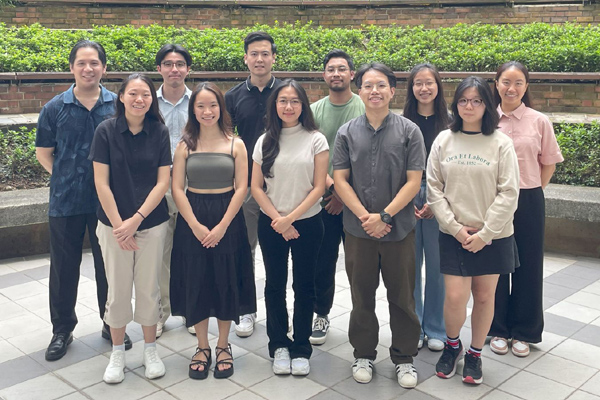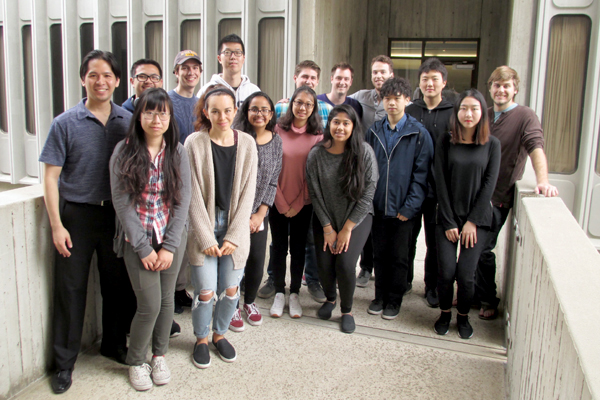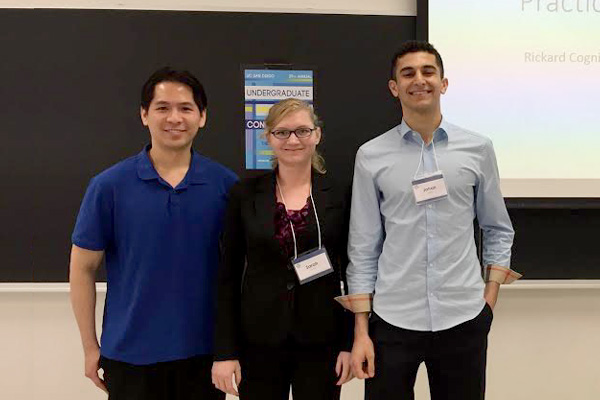Opportunities



In the Learning Sciences Laboratory, major topics of study include the optimization of learning in science education, text processing, spelling, and other domains, as well as test-enhanced learning and learning from errors. Ongoing and recent projects have also addressed human learning and knowledge representation, memory retrieval processes, acquisition and transfer of skills, the role of sleep in learning and memory, skill-training programs, and the cognitive processes underlying recall from long-term memory.
Interested in Learning Sciences Research?
Prospective Undergraduate Researchers
If you are an undergraduate who is interested in joining the laboratory, please contact: scp@nus.edu.sg. To apply, please email: (1) class schedule screenshot; (2) any work/time commitments; (3) class level (e.g., freshman), (4) GPA; (5) degree goal (e.g., PSYC BS); (6) programming experience, if any. We now also require: (7) CV (that mentions any prior research experience) and (8) an unofficial transcript.
The laboratory considers applications for undergraduate research assistant positions, starting on a volunteer basis, depending on the time of year. Typically, the best time to apply is in the weeks prior to the start of the academic year or next semester. New team members usually start at the beginning of a given semester and not during the middle or end of an ongoing semester. Please note that research assistant positions in the laboratory are subject to availability and applications are evaluated on a competitive basis. Those interested in applying should reach out via email with the above requested information at the appropriate time. Any experience with web programming (HTML, CSS, JavaScript, etc.) is especially welcome.
Please note that substantial undergraduate research assistant experience of at least one semester is required to be eligible to pursue an Honours Thesis (HT) in this laboratory. Substantial means experience with developing, programming, pilot testing, running, and analysing data from an empirical research project in the laboratory. Hence, it is a very good idea to join early, for instance under the Undergraduate Research Opportunities Programme (UROP) or the Independent Research Project (IRP), to gain such experience.
Prospective Graduate Students
If you are a prospective graduate student, please send a short email (1) summarizing your research interests and proposed direction of graduate study; (2) your CV, which should include details of all prior research experiences; (3) links to any conference abstracts, research presentations, or publications; (4) unofficial transcript; and (5) if you did not complete a psychology degree, please indicate what courses you have taken in the areas of research methods, statistics, and/or programming.
Although NUS Psychology no longer has a Graduate Record Examination (GRE) minimum score requirement, prospective graduate students interested in joining the Learning Sciences Laboratory should have a recent GRE score (general test) available either at the time of application or in the two months afterward. If a GRE score is not immediately available, a score on a recent standardized test with percentiles or equivalent psychometrics (e.g., MCAT) may also be submitted for consideration. There is not a score cutoff that applicants must exceed; rather, the score is incorporated as part of a holistic evaluation process.
Please note that this is a Cognitive Psychology laboratory; we primarily focus on learning strategies and their effects on long-term memory (as opposed to clinical psychology, counseling psychology, positive psychology, music psychology, social psychology, or motivation science, etc.). The Psychology graduate programme is not a program in Education, Educational Leadership, Language Learning, etc. It is a psychology programme. Connections to other subdisciplines of psychology are possible as long as cognitive processes and learning strategies remain the focus. Prospective graduate students should be interested and willing to pursue projects that are highly relevant to the laboratory's research direction. Please also note that funding for PhD students comes from various sources. It is fairly common to engage in part-time assistant teaching, which can help cover tuition / fees. The application process also includes the possibility of applying for competitive scholarships.
Due to the volume of applications, we cannot respond to all messages expressing interest in application. Applicants are advised to read this page very carefully before sending an expression of interest.
Internships and Other Research Opportunities
The Learning Sciences Laboratory currently does not have any openings for paid research positions with a duration less than six months. The sole exceptions involve the Internship and Research Immersion in Singapore (IRIS) programme and the Amgen Scholars Programme. We currently do not accept high school students that wish to pursue a short duration project. The typical commitment in this laboratory is at least 12 months. Note: all team members typically must have an existing university affiliation.
Undergraduate Research Experiences
We regularly recruit talented undergraduate students that are interested in learning and memory research as part of university honours programs and other pipeline programs that emphasize research experience. As such, we strongly encourage interested undergraduates to consider applying for those programs (where eligible). Students who join our lab through one of these education pipeline programs will receive one-on-one mentorship in the development of an empirical research project, from experimental design to data collection, analysis, and presentation or publication. This experience often serves as excellent preparation for graduate careers.
In addition, helping students attain their first research conference presentation experiences is a major focus of our mentorship efforts. Students working with me typically receive instruction in poster and research talk development, individualized coaching in presentation skills, and advisement on the finer points of data analysis and interpretation. This culminates in presentations in a variety of venues. A list of venues that students members have presented at (US examples) include:
- UCSD Undergraduate Research Conference (URC)
- UCSD Summer Research Conference (SRC)
- Eleanor Roosevelt College Undergraduate Research Conference
- UCLA Psychology Undergraduate Research Conference (PURC)
- SACNAS Advancing Diversity in STEM Conference
- Southern California Conference on Undergraduate Research (SCCUR)
- Stanford Undergraduate Psychology Conference
- Psychonomic Society Annual Meeting
Graduate Career Advice
For prospective graduate students interested in applying to work with me at NUS, please be advised that:
- NUS Psychology offers degrees in Psychology only. Not Education, Learning Technologies, Language, or other fields.
- Applicants are expected to have a degree in Psychology (bachelor's or master's).
- Applicants should contact potential advisors well prior to the Fall application due dates.
- Applicants should have experience in laboratory-based, learning-science-focused experimental psychology.